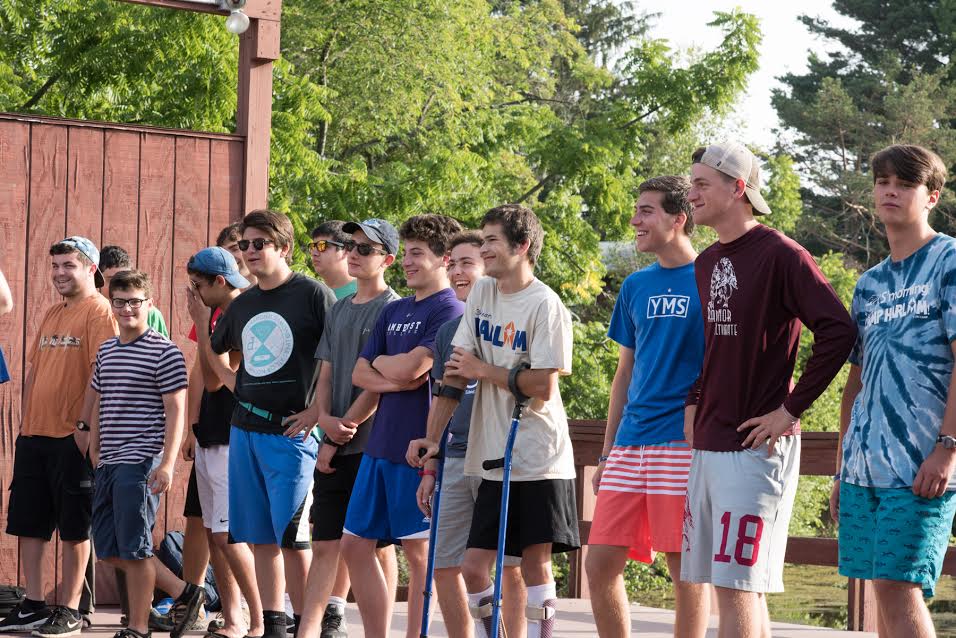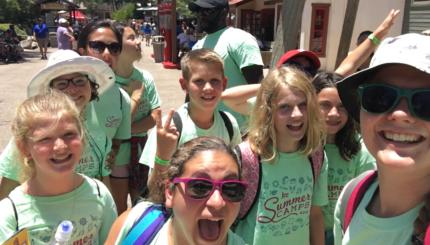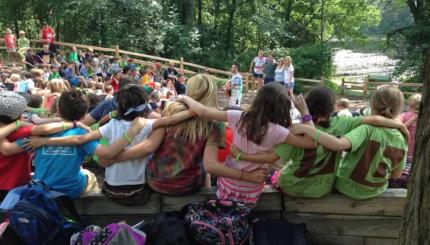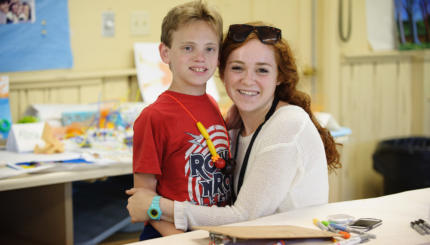February is Jewish Disabilities Awareness and Inclusion Month. Join us as we share stories that highlight the impact of inclusion in our camp communities.
My name is Noah Schramm. I am a good student, a sports enthusiast, a journalist, a camp counselor and a hockey goalie. I also happen to have Cerebral Palsy. How do these things go together, you’re probably asking?
This summer I became a counselor-in-training at a camp for “non-disabled” kids. At URJ Camp Harlam the Gesher (CIT) program is for individuals going into 12th grade.
In addition to the typical concerns of being a counselor, my biggest worry before camp began was that I would be treated differently than everyone else. I found, however, that I didn’t need to be concerned, and that when I did my job, people just saw me as I see myself – as a CIT.
When the campers arrived on the first day, we introduced ourselves with icebreakers. We went around, said our names and something about ourselves. I did not say that I had Cerebral Palsy because I don’t typically view myself like that. After the icebreakers were over some of the campers came up to me and asked questions like “what are those?” (pointing at my orthotics), or “why do you have crutches?. ” I simply responded by saying, “I have a disability which makes my legs weaker than yours.”
After that, they fully accepted me and just stuck to camp-related topics. By being me, I tried to teach my campers that it is acceptable to be different, especially at an age where they think you can only be one way.
At Harlam we have all of the usual activities for children, such as soccer, basketball, and softball. I participate wholeheartedly in these sports, despite my differences.
My strength as a CIT was often in connecting with kids during the quieter moments; whether it was consoling a kid who struck out during their baseball clinic or helping them to learn to be patient.
During one session, I was a CIT for a bunk of Carmel Boys (9-years-olds). One day I had the privilege of going fishing with them. When one of the kids was upset and crying because he had not caught a fish, I told him that it was best to be patient. He then put the line in the water. I stood and waited with him so he could catch a fish.
After about five minutes, I saw a bob in his line. I told him to reel the line in slowly, and he had caught his first fish! He was thrilled and had a big smile. It was a special time for me because I felt enormous joy for someone else.
My ability to see all of a person and to help them work through their challenges comes from the eight years I have played sled hockey. When others watch us, they see kids with disabilities who are just “lucky to be on a team”. When I play hockey, I just see athletes. I feel even more able because I can skate on my own. I feel free physically and free from the labels that society puts on people with a disability.
My contribution to any community is my ability to see a whole person, not just their labels. I inspire people because I refuse to accept the limitations of how people might label me. The challenge that I face is acknowledging the fact that I have a disability, but not living like I am disabled. The more people get to know me the more they see the “me” that I see. They see the person inside the shoes… and orthotics.
Noah is a high school student in NJ. He has spent three summers at URJ Camp Harlam as a camper, and most recently completed the Gesher Leadership Training program.
URJ Camp Harlam is one of the six camps in the FJC Ruderman/Alexander Inclusion Cohort.




